#gulbarg society massacre
Explore tagged Tumblr posts
Text
Zakia Jafri
#bird#cartoon mirror#ehsan jafri#gujarat#gulbarg society massacre#justice#muslim#new india#riots#yusuf munna#zakia jafri
0 notes
Text
Events 2.28
202 BC – Liu Bang is enthroned as the Emperor of China, beginning four centuries of rule by the Han dynasty. 870 – The Fourth Council of Constantinople closes. 1525 – Aztec king Cuauhtémoc is executed on the order of conquistador Hernán Cortés. 1638 – The Scottish National Covenant is signed in Edinburgh. 1835 – Elias Lönnrot signed and dated the first version of the Kalevala, the so-called foreword to the Old Kalevala. 1844 – A gun explodes on board the steam warship USS Princeton during a pleasure cruise down the Potomac River, killing six, including Secretary of State Abel Upshur. President John Tyler, who was also on board, was not injured from the blast. 1922 – The United Kingdom ends its protectorate over Egypt through a Unilateral Declaration of Independence. 1925 – The Charlevoix-Kamouraska earthquake strikes northeastern North America. 1947 – February 28 Incident: In Taiwan, civil disorder is put down with the death of an estimated 28,000 civilians. 1958 – A school bus in Floyd County, Kentucky hits a wrecker truck and plunges down an embankment into the rain-swollen Levisa Fork river. The driver and 26 children die in one of the worst school bus accidents in U.S. history. 1959 – Discoverer 1, an American spy satellite that is the first object intended to achieve a polar orbit, is launched but fails to achieve orbit. 1966 – A NASA T-38 Talon crashes into the McDonnell Aircraft factory while attempting a poor-visibility landing at Lambert Field, St. Louis, killing astronauts Elliot See and Charles Bassett. 1969 – The 1969 Portugal earthquake hits Portugal, Spain and Morocco. 1974 – The British election ended in a hung parliament after the Jeremy Thorpe-led Liberal Party achieved their biggest vote. 1975 – In London, an underground train fails to stop at Moorgate terminus station and crashes into the end of the tunnel, killing 43 people. 1983 – The final episode of MAS*H airs, with almost 110 million viewers. 1985 – The Provisional Irish Republican Army carries out a mortar attack on the Royal Ulster Constabulary police station at Newry, killing nine officers. 1986 – Olof Palme, 26th Prime Minister of Sweden, is assassinated in Stockholm. 1993 – Bureau of Alcohol, Tobacco and Firearms (ATF) agents raid the Branch Davidian church in Waco, Texas with a warrant to arrest the group's leader David Koresh starting a 51-day standoff. 1997 – An earthquake in northern Iran is responsible for about 1,100 deaths. 1997 – A Turkish military memorandum resulted with collapse of the government in Turkey. 2001 – The 2001 Nisqually earthquake, having a moment magnitude of 6.8, with epicenter in the southern Puget Sound, damages Seattle metropolitan area. 2002 – During the religious violence in Gujarat, 97 people are killed in the Naroda Patiya massacre and 69 in the Gulbarg Society massacre. 2013 – Pope Benedict XVI resigns as the pope of the Catholic Church, becoming the first pope to do so since Pope Gregory XII, in 1415. 2023 – Two trains collide south of the Vale of Tempe in Greece, leading to the deaths of at least 57 people and leaving 58 missing and 85 injured.
4 notes
·
View notes
Photo
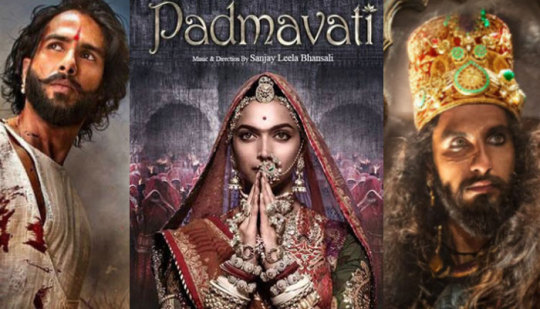
New Post has been published on https://acqro.in/most-controversial-films-in-indian-cinema/
Most Controversial Films in Indian Cinema

Indian cinema has no scarcity of films which either courted major controversy or faced complete ban and were never released in the country. Interestingly, these pictures have garnered rave critical reviews and been well-received at international film festivals. From themes that deal with communal violence to homosexuality and politics, these are some of the most controversial films ever made in India.
Garm Hawa (1973)

Garm Hawa is a film based on an unpublished story by eminent Urdu writer Ismat Chughtai. In 1947, India gained independence from the British colonial rule, but it also came at a heavy price—the division of the country to India and Pakistan. Garm Hawa tells the poignant story of a Muslim businessman who is torn between staying back in India, the land of his forefathers, or joining his relatives in Pakistan. It is one of the best films to showcase the plight of the Muslims in the country in a post-partition era. The film was deferred for eight months, fearing communal violence, before it was released.
Aandhi (1975)

This political drama centres around a woman politician whose appearance was uncannily similar to that of Prime Minister Indira Gandhi. This led the film to face allegations that it was based on her, especially Gandhi’s relationship with her estranged husband. However, the filmmakers had only borrowed the protagonist’s look from the Prime Minister and the rest had nothing to do with her life. Even after its release, the director was asked to remove scenes which showed the lead actress smoking and drinking during an election campaign and the film was completely banned during the national Emergency later that year.
Kissa Kursi Ka (1977)
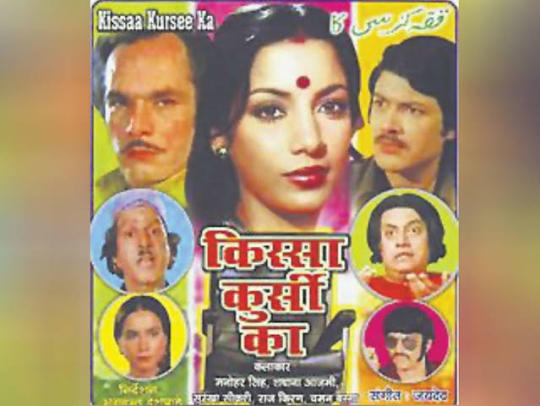
Directed by Member of Parliament Amrit Nahata, the film is a satire on the administrative regime of Prime Minister Indira Gandhi and her son Sanjay Gandhi. Kissa Kursi Ka was submitted for certification from the Central Board of Film Certification in 1975 but the country was put under Emergency the same year and so the film was banned during that entire period. All movie prints, including the masterprint, were confiscated and destroyed during the time, a move which even landed Sanjay in jail.
Bandit Queen (1994)
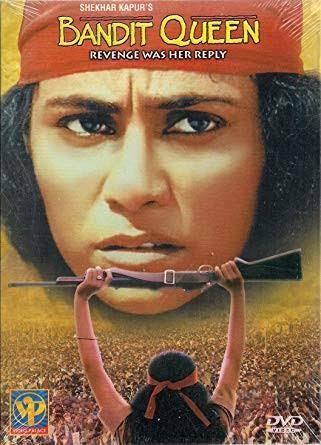
The biographical film is based on the life of Phoolan Devi, a feared woman dacoit who led a gang of bandits in northern India. Phoolan belonged to a poor low caste family and was married to a man three times her age. She later took to a life of crime. The film, directed by Bafta-winner Shekhar Kapur, was criticised for its excessive use of abusive language, sexual content and nudity. Despite the backlash, Bandit Queen went on to win the National Film Award for Best Feature Film.
Fire (1996)
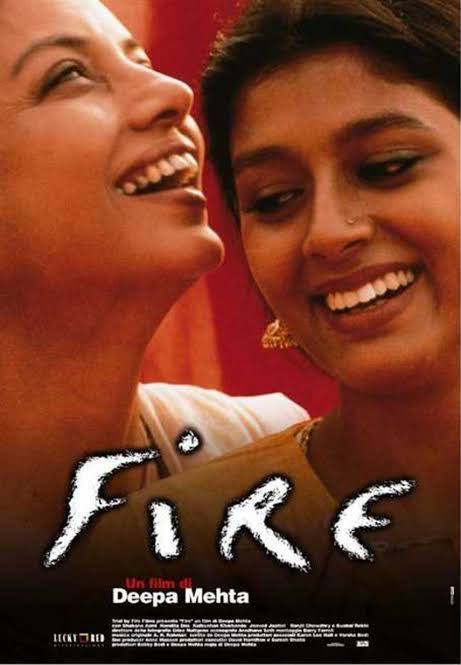
Fire is the first instalment in the Elements trilogy directed by acclaimed filmmaker Deepa Mehta. It is considered a pathbreaking film for being the first Indian cinema to explore homosexual relationship. But on its release, it faced adverse reactions with vandals burning posters and destroying cinemas where the film was being screened. Following the scandal, Fire was retracted briefly and Mehta even led a candlelit protest in New Delhi to oppose the move.
Kama Sutra: A Tale of Love (1996)

Kama Sutra: A Tale Of Love, directed by Mira Nair, was banned in India with the officials stating the film’s sexual content was too harsh for Indian sensitivities. An ironic suggestion, considering the book Kama Sutra originated in India and is easily available for purchase. Protesters labelled the film as unethical and immoral, but it received widespread critical acclaim. Kama Sutra: A Tale Of Love explores the relationship of four lovers in 16th-century India.
Paanch (2003)
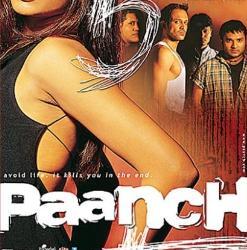
Anurag Kashyap is a pioneer filmmaker, but also one of the most controversial in the Indian film industry. He has never shied away from broaching bold topics, which may not sit well with many in the Indian community. His directorial debut Paanch, which revolves around the life of five band members entangled in a kidnapping plot gone wrong, remains unreleased to this day. Inspired by true life incidents, the drugs, violence and sex depicted in the film was considered inappropriate for the Indian audience.
Hava Aaney De (2004)

Hava Aney De is an Indo-French film which works with the sensitive subject of India-Pakistan war. The Censor Board of India demanded over 21 cuts in the film, but the director Partho Sen-Gupta would hear nothing of it. Hava Aney De, therefore, was never released in India. It did win multiple awards at film events held abroad including Best Film at Durban International Film Festival and the BBC Audience Award at the Commonwealth Film Festival.
Water (2005)

Water is the third and final instalment in Deepa Mehta’s trilogy of films. It tackles the subject of ostracism and misogyny through the lives of widows at an ashram in Varanasi. Water was believed to show the country in a bad light, and even before filming started, right-wing activists wrecked film sets and issued suicide threats. Mehta was eventually forced to move the filming location to Sri Lanka. Not only that, but she had to change the entire cast and shoot the film under a pseudo title, River Moon.
The Pink Mirror (2006)
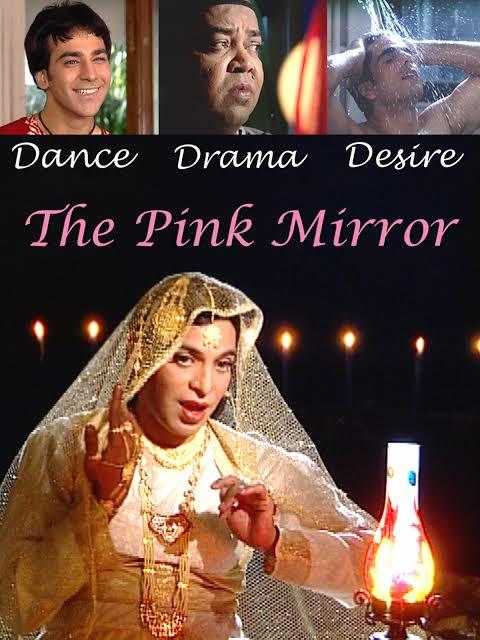
The Pink Mirror is the first mainstream film to have two transsexuals as protagonists. While it was a groundbreaking moment in Indian cinema, the Central Board of Film Certification had other opinions, calling the film “’vulgar and offensive”. The Pink Mirror remains banned in India but it went on to win the Jury Award for Best Feature at the New York LGBT Film Festival and the Best Film of the Festival at Question de Genre in Lille, France. You can catch the film on Netflix now.
Black Friday (2007)

Black Friday, another Anurag Kashyap venture, also faced a temporary ban. It deals with the 1993 Mumbai bombings, and the Bombay High Court decided to suspend the release until the trial was over. This meant that Kashyap had to wait for another three years until Black Friday hit cinemas. The film received praise from both international and national media with the New York Times comparing it to Academy Award nominees Salvador and Munich.
Parzania (2007)

Parzania is inspired by the true story of a 10-year-old boy, Azhar Mody who disappeared after the 2002 Gulbarg Society massacre during which 69 people were killed. This is one of the many incidents which led to the Gujarat riots, one of the worst acts of communal violence the country has ever witnessed. Cinema owners in Gujarat were allegedly threatened not to screen Parzania and the film went on to face an unofficial ban in the state.
Inshallah, Football (2010)

Inshallah, Football is a documentary film about a young boy from Kashmir who dreams of becoming a famous footballer. But his ambitions are crushed when he is not allowed to travel abroad because his father is an alleged militant. Critics felt the documentary showcased the reality of violence-afflicted Kashmir, but it failed to get the green light from the authorities for release in India as they felt the film was critical of how the Indian military operated in the politically sensitive region of Kashmir.
India’s Daughter (2015)
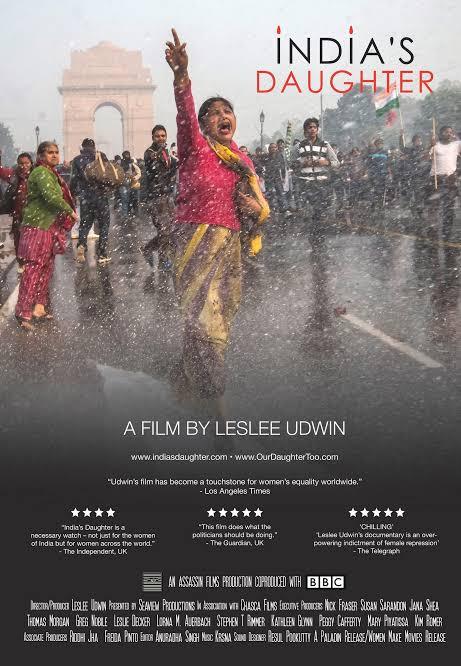
India’s Daughter is a documentary by British filmmaker Leslee Udwin and is based on the horrific Delhi gang rape and murder of 23-year-old student Jyoti Singh in 2012. The film includes an interview with Mukesh Singh, one of the four men convicted in the case. India’s Daughter was banned in India because the rapist airs certain views on gender which show the country in a poor light. These incendiary comments were believed to disturb the peace restored after a countrywide protest following news of the rape.
Padmavati (2017)

Padmavati is the latest Hindi film to court serious controversy as some right-wing groups felt that the film misrepresents history and thus tarnishes the reputation of certain communities in Rajasthan. A bounty was also put on the director and the lead actress, who portrays the historical queen Padmavati in the film. The film was scheduled for release in December 2017 but remains shelved so far. Historians, however, have debated the real life existence of the queen, with many saying she was a fictional character in an epic poem.
3 notes
·
View notes
Text
What Were You Wearing During Gulbarg Society Massacre : Asaduddin Owaisi Slams PM Modi On His ‘Raincoat’ Remarks
What Were You Wearing During Gulbarg Society Massacre : Asaduddin Owaisi Slams PM Modi On His ‘Raincoat’ Remarks
Hyderabad : All India Majlis-e-Ittehadul Muslimeen ( AIMIM) chief and MP Asaduddin Owaisi takes on Prime Minister Narendra Modi for his ‘bathing in raincoat’ remark on former Prime Minister Dr. Manmohan Singh and questioned Narendra Modi’s actions in the 2002 Gulbarg Society massacre when he was Gujarat’s chief minister. “If ex PM MMS was wearing raincoat in Bathroom, may I ask PM Modi what were…
View On WordPress
#AIMIM#asaduddin owaisi#Asaduddin Owaisi Expose Narendra Modi#Asaduddin Owaisi slams PM Narendra Modi#BJP#Gulbarg Society Massacre#Narendra Modi#Prime Minister Narendra Modi
0 notes
Photo

20 years after the Gulbarg Society massacre. Ehsan Jafri's house. 69 people were killed here. Gujarat 2002.
1 note
·
View note
Text
Who is Zakia Jafri and what are her complaints
By Briti Roy Barman| Wednesday, February 5, 2020, 17:18 [IST]
Published in www.oneindia.com
New Delhi, Jan 05: The Supreme Court on Tuesday fixed April 14 for hearing a plea by Zakia Jafri, wife of slain MP Congress Ehsan Jafri, challenging the SIT's clean chit to then Gujarat chief minister Narendra Modi in the 2002 riots. The apex court said that the matter had been adjourned many times and as it will have to hear it someday the court listed the matter asking all to be available for the hearing on the due date.

"This matter has been adjourned so many times, whatever it is, we will have to hear it someday. Take one date and make sure you all are available," said a bench of Justices Dinesh Maheshwari and A M Khanwilkar.

Jafri's lawyer advocate Aparna Bhatt said that the matter is a contentious one and sought adjournment of the matter till after the Holi vacation next month. She though said senior advocate Kapil Sibal would argue on behalf of Jafri. The Jafri case has been adjourned five times since the petition was filed in 2018. Jafri's counsel told the top court that notice needs to be issued in the plea as the plea relates to an alleged "larger conspiracy" of riots and continued violence from February 27 to May 2002.
Who is Zakia Jafri
Zakia Jafri is the widow of Congress MP Ehsan Jafri who was brutally murdered in the 2002 Gulberg Society massacre that took place day after Godhra genocide in Gujarat on February 27. The couple was sheltering their neighbours from a violent mob during the attack as a mob of thousands gathered outside the residential colony. Ehsan stepped out for mercy to the mob for the people he was sheltering and murdered in the process. Jafri Zakia, who had hidden on a room on the first floor, survived the attack.

Gulbarg Society massacre in 2002
Gulbarg Society was tagged as an upper and middle class residential colony in north Ahmedabad. The massacre took place a day after the Godhra train fire, in which 59 pilgrims were charred to death. Hatred was torching all over Gujarat as it was the Gulberg's turn to be the victim. Residents sought shelter at Jafri's bungalow as houses were set on fire one after another. The rioters did not spare the former parliamentarian as they lynched him and torched his bungalow that killed 69 people include Ehsan Jafri. The trial court described the massacre as the "darkest day in the history of civil society of Gujarat."

The first complaint in the Zakia Jafri case
On June 8, 2006, Zakia Jafri filed an FIR against 63 people which include the then chief minister of Gujarat and current Prime Minister Narendra Modi, top ministers, MLAs, IAS and IPS officers, and political leaders.
The timeline
Now 80, Jafri has been fighting for justice for her slain husband since 2006. The June 8, 2006 complaint did not get any response and Jafri filed a petition in the Gujarat High Court praying that her complaint be treated as FIR. But the High Court dismissed this complaint. Zakia Jafri then moved Supreme Court against the order passed on November 2, 2007, by the Gujarat High Court. On February 8, 2012, the Special Investigation Team filed a closure report giving a clean chit to Narendra Modi and 63 others. Jafri then filed a plea in Gujarat High Court against the SIT decision in 2017 and as it was rejected she filed the petition in 2018 in the apex court against Gujarat High Court's October 5, 2017 order. Since the petition was filed in 2018 the case has been adjourned five times till now.

Are Zakia Jafri case and Gulberg case same?
Both the cases are distinct as Zakia Jafri case seeks the justice for the massacre that took place at Gulberg Society, the Gulberg case deals with criminal and administrative liability.
0 notes
Link
New Delhi [India], Dec 3 (ANI): The Supreme Court on Monday adjourned till January third week a plea of Zakia Jafri, widow of former Congress MP Ehsan Jafri, challenging the clean chit given by the Special Investigation Team (SIT) to Prime Minister Narendra Modi and several others in 2002 Gujarat riots. A bench headed by Justice AM Khanwilkar adjourned the matter after counsels appearing for Jafri and anther applicant Teesta Setalvad, sought time to file more documents. Senior advocate Kapil Sibal, appearing for Jafri, asked for time to file convenience volumes consisting of direct evidence to establish a conspiracy. Jafri was among 69 people killed in the Gulbarg Society massacre. The SIT, appointed by the apex court, conducted the investigation into the case and gave a clean chit to then Gujarat Chief Minister Narendra Modi, other top politicians and bureaucrats. The clean chit was given citing lack of "prosecutable evidence" against them. Challenging the Gujarat High Court's order dated October 5, 2017 that upheld SIT's clean chit, Zakia approached the Supreme Court alleging a "larger conspiracy" in the riots. The Gujarat High Court had upheld the magisterial court's order, accepting the SIT's closure report. Earlier, Zakia had approached the Gujarat High Court in 2014 after the magisterial court rejected the petition challenging the SIT report. In her petition to the Supreme Court, Zakia has stated: "Grant ad-interim order to Special Investigation Team (SIT) to carry out further investigation under section 173(8) of Code of Criminal Procedure (Cr. P. C.) in regard to the petitioner's complaint dated June 8, 2006 and the evidence placed before the learned through the protest petition dated April 15, 2013." (ANI)
https://www.aninews.in/news/gujarat-riots-sc-to-hear-zakia-jafris-plea-challenging-clean-chit-to-pm-modi201812031411000001/
0 notes
Link
YC Modi, who gave clean chit to @narendramodi in 2002 Gulbarg Society massacre in which 69 people were killed, is the front runner to be appointed as CBI Chief after Alok Sinha retirement in January 2019 https://t.co/WCbatSBvek
— Kapil (@kapsology) November 22, 2018
0 notes
Text
NSFW Alert: 7 controversial films you should or shouldn't watch!
After several months of violence, drama and chaos caused by fringe groups, namely Karni Sena, Sanjay Leela Bhansali's "Padmaavat" has finally hit the theatres and raking in moolah. It has been estimated that almost a million viewers were recorded on the first day of the film hitting the screens on January 25, 2018.
While all seems to be going well for the makers of "Padmaavat", there were others like the film that either got shelved, banned or was denied a certificate without major cuts in the storyline.
These are some movies you would like to go through if you have a thing or two about controversies:
1. Sins
A 2005 release, "Sins" is based on a news story that surfaced in 1988 about a Kerala priest sentenced to death on sexual harassment and murder charges.
Sins (Twitter)
×
The film is about the unconventional love cum passionate affair of a young girl with an older priest which hit the controversy meter owing to its countless topless scenes. It got an 'A' certificate from the CBFC and the Catholic Secular Forum filed a public interest litigation to stall its release as they protested that the film had a negative portrayal of Catholicism. The court, however, cleared the film.
2. Ek Chhotisi Love Story
"Ek Chotisi Love Story" or "One Small Love Story" in English is a 2002 Indian romantic film that created a furore when stellar actress Manisha Koirala was seen romancing a 15-year-old.
Ek Chotisi Love Story (Twitter)
×
The film follows the story of a teenage boy who falls in love with his neighbour without her knowledge and starts behaving like a sexual predator, watching her every move closely. The film earned the actress a bad name in public as it showed porn-like scenes -- love-making and bathroom masturbation scenes, never seen before.
Apart from creating a public outcry, there was more controversy when Manisha herself asked for a court order to stay the release of the film pending deletion of some shots she found objectionable as she said that she was impersonated by someone else.
3. Parzania
A 2007 release, Parzania made waves as it was based on a story born of the controversial Gujarat communal riots. The film is inspired by the true story of a ten-year-old Parsi boy, Azhar Mody, played in the film as Parzaan Pithawala in the film, who disappeared after the 28 February 2002 Gulbarg Society massacre during which 69 people were killed -- which was one of many events in the communal riots in Gujarat in 2002.
Parzania (Twitter)
×
It did not release in the state of Gujarat as the cinema owners refused to screen the film, fearing a backlash.
4. Aastha
Aastha: In the Pison of Sring is a 1997 film that is known for its explicit scenes, something Bollywood had never anticipated or seen before.
Aastha (Twitter)
×
Portraying a married woman who turns a prostitute, Rekha was criticised by the audience. In an interview, she was quoted: "After 'Aastha: In the Prison of Spring' people had a lot to say about my role of a wife who moonlights as a prostitute. I don't have problems playing anything. I've reached a stage where I could do justice to any role that came my way. It could be the role of a mother, a sister-in-law; negative, positive, sensational or anything."
5. Fire
The Elements trilogy is a trilogy of films by Indian film-maker Deepa Mehta, dealing with controversial issues of social reform on the Indian subcontinent. Fire, the first release in 1996, dealt with issues of arranged marriage and homosexuality in the patriarchal culture of India.
Fire (Twitter)
×
The film attracted hostility from some people in the Hindu community who objected to her depiction of Hindu culture and subsequently organised attacks on cinemas that were screening the film.
6. Water
The second part of the Elements trilogy, Water faced even more threat when fringe groups did not let shooting of the film to start. Close to 2000 protestors landed at the supposed set at the ghats, destroyed the main film set, burning and throwing it into the Ganges in protest of the film's subject matter.
Water (Twitter)
×
The director had to then shift the movie to Sri Lanka and make the film with a new cast and fake title -- River Moon in 2003.
7. Black Friday
Black Friday is a 2004 film based on Black Friday – The True Story of the Bombay Bomb Blasts, a book by Hussain Zaidi about the 1993 Bombay bombings.
Black Friday (Twitter)
×
The film was so controversial that the CBFC did not allow it to be released in India for three years and was finally released on 9 February 2007. This after the Supreme Court allowed it following the verdict in the '93 Bombay blast case was delivered by TADA court.
]]>
0 notes
Text
Events 2.28
202 BC – Liu Bang is enthroned as the Emperor of China, beginning four centuries of rule by the Han dynasty. 870 – The Fourth Council of Constantinople closes. 1525 – Aztec king Cuauhtémoc is executed on the order of conquistador Hernán Cortés. 1638 – The Scottish National Covenant is signed in Edinburgh. 1835 – Elias Lönnrot signed and dated the first version of the Kalevala, the so-called foreword to the Old Kalevala. 1844 – A gun explodes on board the steam warship USS Princeton during a pleasure cruise down the Potomac River, killing six, including Secretary of State Abel Upshur. President John Tyler, who was also on board, was not injured from the blast. 1922 – The United Kingdom ends its protectorate over Egypt through a Unilateral Declaration of Independence. 1925 – The Charlevoix-Kamouraska earthquake strikes northeastern North America. 1947 – February 28 Incident: In Taiwan, civil disorder is put down with the loss of an estimated 30,000 civilians. 1948 – Christiansborg Cross-Roads shooting in the Gold Coast, when a British police officer opens fire on a march of ex-servicemen, killing three of them and sparking major riots and looting in Accra. 1953 – James Watson and Francis Crick announce to friends that they have determined the chemical structure of DNA; the formal announcement takes place on April 25 following publication in April's Nature (pub. April 2). 1958 – A school bus in Floyd County, Kentucky hits a wrecker truck and plunges down an embankment into the rain-swollen Levisa Fork river. The driver and 26 children die in what remains one of the worst school bus accidents in U.S. history. 1959 – Discoverer 1, an American spy satellite that is the first object intended to achieve a polar orbit, is launched but fails to achieve orbit. 1966 – A NASA T-38 Talon crashes into the McDonnell Aircraft factory while attempting a poor-visibility landing at Lambert Field, St. Louis, killing astronauts Elliot See and Charles Bassett. 1972 – China–United States relations: The United States and China sign the Shanghai Communiqué. 1974 – The British election ended in a hung parliament after the Jeremy Thorpe-led Liberal Party achieved their biggest vote. 1975 – In London, an underground train fails to stop at Moorgate terminus station and crashes into the end of the tunnel, killing 43 people. 1980 – Andalusia approves its statute of autonomy through a referendum. 1983 – The final episode of M*A*S*H airs, with almost 106 million viewers. It still holds the record for the highest viewership of a season finale. 1985 – The Provisional Irish Republican Army carries out a mortar attack on the Royal Ulster Constabulary police station at Newry, killing nine officers in the highest loss of life for the RUC on a single day. 1986 – Olof Palme, 26th Prime Minister of Sweden, is assassinated in Stockholm. 1991 – The first Gulf War ends. 1993 – The Bureau of Alcohol, Tobacco and Firearms agents raid the Branch Davidian church in Waco, Texas with a warrant to arrest the group's leader David Koresh. Four ATF agents and six Davidians die in the initial raid, starting a 51-day standoff. 1995 – Former Australian Liberal party leader John Hewson resigns from the Australian parliament almost two years after losing the 1993 Australian federal election. 1997 – An earthquake in northern Iran is responsible for about 3,000 deaths. 1997 – GRB 970228, a highly luminous flash of gamma rays, strikes the Earth for 80 seconds, providing early evidence that gamma-ray bursts occur well beyond the Milky Way. 1997 – A Turkish military memorandum resulted with collapse of the government in Turkey. 2001 – The 2001 Nisqually earthquake, having a moment magnitude of 6.8, with epicenter in the southern Puget Sound, damages Seattle metropolitan area. 2002 – During the religious violence in Gujarat, 97 people are killed in the Naroda Patiya massacre and 69 in the Gulbarg Society massacre. 2004 – Over one million Taiwanese participate in the 228 Hand-in-Hand rally form a 500-kilometre (310 mi) long human chain to commemorate the February 28 Incident in 1947. 2005 – A suicide bombing at a police recruiting centre in Al Hillah, Iraq kills 127. 2013 – Pope Benedict XVI resigns as the pope of the Catholic Church, becoming the first pope to do so since Pope Gregory XII, in 1415.
0 notes
Text
Most Controversial Films in Indian Cinema

Indian cinema has no scarcity of films which either courted major controversy or faced complete ban and were never released in the country. Interestingly, these pictures have garnered rave critical reviews and been well-received at international film festivals. From themes that deal with communal violence to homosexuality and politics, these are some of the most controversial films ever made in India. Garm Hawa (1973)

Garm Hawa is a film based on an unpublished story by eminent Urdu writer Ismat Chughtai. In 1947, India gained independence from the British colonial rule, but it also came at a heavy price—the division of the country to India and Pakistan. Garm Hawa tells the poignant story of a Muslim businessman who is torn between staying back in India, the land of his forefathers, or joining his relatives in Pakistan. It is one of the best films to showcase the plight of the Muslims in the country in a post-partition era. The film was deferred for eight months, fearing communal violence, before it was released. Aandhi (1975)

This political drama centres around a woman politician whose appearance was uncannily similar to that of Prime Minister Indira Gandhi. This led the film to face allegations that it was based on her, especially Gandhi’s relationship with her estranged husband. However, the filmmakers had only borrowed the protagonist’s look from the Prime Minister and the rest had nothing to do with her life. Even after its release, the director was asked to remove scenes which showed the lead actress smoking and drinking during an election campaign and the film was completely banned during the national Emergency later that year. Kissa Kursi Ka (1977)

Directed by Member of Parliament Amrit Nahata, the film is a satire on the administrative regime of Prime Minister Indira Gandhi and her son Sanjay Gandhi. Kissa Kursi Ka was submitted for certification from the Central Board of Film Certification in 1975 but the country was put under Emergency the same year and so the film was banned during that entire period. All movie prints, including the masterprint, were confiscated and destroyed during the time, a move which even landed Sanjay in jail. Bandit Queen (1994)

The biographical film is based on the life of Phoolan Devi, a feared woman dacoit who led a gang of bandits in northern India. Phoolan belonged to a poor low caste family and was married to a man three times her age. She later took to a life of crime. The film, directed by Bafta-winner Shekhar Kapur, was criticised for its excessive use of abusive language, sexual content and nudity. Despite the backlash, Bandit Queen went on to win the National Film Award for Best Feature Film. Fire (1996)

Fire is the first instalment in the Elements trilogy directed by acclaimed filmmaker Deepa Mehta. It is considered a pathbreaking film for being the first Indian cinema to explore homosexual relationship. But on its release, it faced adverse reactions with vandals burning posters and destroying cinemas where the film was being screened. Following the scandal, Fire was retracted briefly and Mehta even led a candlelit protest in New Delhi to oppose the move. Kama Sutra: A Tale of Love (1996)

Kama Sutra: A Tale Of Love, directed by Mira Nair, was banned in India with the officials stating the film’s sexual content was too harsh for Indian sensitivities. An ironic suggestion, considering the book Kama Sutra originated in India and is easily available for purchase. Protesters labelled the film as unethical and immoral, but it received widespread critical acclaim. Kama Sutra: A Tale Of Love explores the relationship of four lovers in 16th-century India. Paanch (2003)

Anurag Kashyap is a pioneer filmmaker, but also one of the most controversial in the Indian film industry. He has never shied away from broaching bold topics, which may not sit well with many in the Indian community. His directorial debut Paanch, which revolves around the life of five band members entangled in a kidnapping plot gone wrong, remains unreleased to this day. Inspired by true life incidents, the drugs, violence and sex depicted in the film was considered inappropriate for the Indian audience. Hava Aaney De (2004)

Hava Aney De is an Indo-French film which works with the sensitive subject of India-Pakistan war. The Censor Board of India demanded over 21 cuts in the film, but the director Partho Sen-Gupta would hear nothing of it. Hava Aney De, therefore, was never released in India. It did win multiple awards at film events held abroad including Best Film at Durban International Film Festival and the BBC Audience Award at the Commonwealth Film Festival. Water (2005)

Water is the third and final instalment in Deepa Mehta’s trilogy of films. It tackles the subject of ostracism and misogyny through the lives of widows at an ashram in Varanasi. Water was believed to show the country in a bad light, and even before filming started, right-wing activists wrecked film sets and issued suicide threats. Mehta was eventually forced to move the filming location to Sri Lanka. Not only that, but she had to change the entire cast and shoot the film under a pseudo title, River Moon. The Pink Mirror (2006)

The Pink Mirror is the first mainstream film to have two transsexuals as protagonists. While it was a groundbreaking moment in Indian cinema, the Central Board of Film Certification had other opinions, calling the film “’vulgar and offensive”. The Pink Mirror remains banned in India but it went on to win the Jury Award for Best Feature at the New York LGBT Film Festival and the Best Film of the Festival at Question de Genre in Lille, France. You can catch the film on Netflix now. Black Friday (2007)

Black Friday, another Anurag Kashyap venture, also faced a temporary ban. It deals with the 1993 Mumbai bombings, and the Bombay High Court decided to suspend the release until the trial was over. This meant that Kashyap had to wait for another three years until Black Friday hit cinemas. The film received praise from both international and national media with the New York Times comparing it to Academy Award nominees Salvador and Munich. Parzania (2007)

Parzania is inspired by the true story of a 10-year-old boy, Azhar Mody who disappeared after the 2002 Gulbarg Society massacre during which 69 people were killed. This is one of the many incidents which led to the Gujarat riots, one of the worst acts of communal violence the country has ever witnessed. Cinema owners in Gujarat were allegedly threatened not to screen Parzania and the film went on to face an unofficial ban in the state. Inshallah, Football (2010)

Inshallah, Football is a documentary film about a young boy from Kashmir who dreams of becoming a famous footballer. But his ambitions are crushed when he is not allowed to travel abroad because his father is an alleged militant. Critics felt the documentary showcased the reality of violence-afflicted Kashmir, but it failed to get the green light from the authorities for release in India as they felt the film was critical of how the Indian military operated in the politically sensitive region of Kashmir. India's Daughter (2015)

India’s Daughter is a documentary by British filmmaker Leslee Udwin and is based on the horrific Delhi gang rape and murder of 23-year-old student Jyoti Singh in 2012. The film includes an interview with Mukesh Singh, one of the four men convicted in the case. India’s Daughter was banned in India because the rapist airs certain views on gender which show the country in a poor light. These incendiary comments were believed to disturb the peace restored after a countrywide protest following news of the rape. Padmavati (2017)

Padmavati is the latest Hindi film to court serious controversy as some right-wing groups felt that the film misrepresents history and thus tarnishes the reputation of certain communities in Rajasthan. A bounty was also put on the director and the lead actress, who portrays the historical queen Padmavati in the film. The film was scheduled for release in December 2017 but remains shelved so far. Historians, however, have debated the real life existence of the queen, with many saying she was a fictional character in an epic poem. Read the full article
1 note
·
View note
Text
Gulbarg society massacre convict Atul Vaidya gets bail
Gulbarg society massacre convict Atul Vaidya gets bail
Gulbarg society massacre convict Atul Vaidya gets bail VHP leader Atul Vaidya, who was convicted in Gulbarg society massacre case of 2002 riots, has been granted bail by Gujarat High Court. Vaidya was convicted and sentenced to seven years imprisonment i… Read More : Gulbarg society massacre convict Atul Vaidya gets bail Source: The Hindu – National
View On WordPress
0 notes
Text
Asaduddin Owaisi slams PM Narendra Modi for 'raincoat' remark, questions his role in Gulbarg Society massacre - Financial Express
Financial Express Asaduddin Owaisi slams PM Narendra Modi for 'raincoat' remark, questions his role in Gulbarg Society massacre Financial Express All India Majlis-e-Ittehadul Muslimeen (AIMIM) chief Asaduddin Owaisi on Thursday slammed Prime Minister Narendra Modi for his 'raincoat' remark on his predecessor Dr Manmohan Singh and questioned the former's role in the 2002 Gulbarg Society ... and more » http://dlvr.it/NKf1tL | t.co/9WEQpXnU29 #namonamo
0 notes
Text
Asaduddin Owaisi slams PM Narendra Modi for 'raincoat' remark, questions his role in Gulbarg Society massacre - Financial Express
@NarendraModi http://dlvr.it/NKdTXs @Verified
0 notes
Photo

Detailed info courtesy twitter handle @SuzaneNayak This "RSS is an ideology, hence we must learn to coexist" stupidity needs to stop. Ideology is a school of thoughts, a set of beliefs. For e.g. - one grp that chooses Gandhi as their example of social justice. + + Another set that chooses Ambedkar's outlook, speeches & pragmatic approach through economy & policies as their model of social justice. + + That is a case of two opposite forms of IDEOLOGIES COEXISTING IN A DEMOCRACY. RSS is NOT an "ideology", it's a terrorist outfit. + +RSS has gone much beyond being an "opposite form of *ideology*". It has translated its *ideology* into action harming & killing others. + + RSS stopped being an ideology when it's cadres attacked & dismantled Babri Masjid in 92. Killed uncountable Muslims in the aftermath. + +RSS stopped being an ideology when it attacked/burned several Churches in Odisha in the 90s forcing Archbishop to pen a letter to then PM.+ + RSS stopped being an ideology when it attacked 1998 it set fire to 92 Christian homes in Udaygiri-Ramgiri villages & a police station.+ + RSS stopped being an ideology when it hacked off body parts of a Muslim Merchant, Seikh Rehman & burned him to death *publicly*. Odisha.+ + When it raped Nun Jacqueline Mary & burnt alive Graham Staines & his two sons under the age of 10 in 1999. And SC justified it. + One of the most heinous crime by RSS was in 2002 in Gujarat riots. And look how the criminals were rewarded with Ministerial seats.+ +They hacked, killed pregnant women, ripped apart fetus, burned men, massacred several in Gulbarg society. I can't even begin to imagine.. + + And, the 2008 riots. The Muzaffarnagar riots. The lynching of Akhlaq & terrible assault in his family. And many such incidents in India.+ + Actually, RSS had stopped being an "ideology" long ago. In 1948. The moment they killed Gandhi. Or, before that when they tried & failed.+ + RSS is the typical e.g. of what a home grown terrorist outfit looks like, works like, spreads terror,indulges Mass murder/rapes/riots/etc+ +RSS enjoys every form of State protection- directly from their own party or indirectly from "secular" parties. Justified by Justice System. + As Noam Chomsky says - "For the powerful crimes are those that others commit." Add the "privileged" to it. (I'm not sorry to say it) + +Those "anti-RSS" fellows who want RSS to not be banned, calls for "coexistence", you are giving indirect support/open space to TERRORISTS.+ + I repeat, RSS is NOT simply an ideology, it's a TERRORIST ORGANIZATION. If you truly want to defeat it, call it out as such. Why hesitate+
0 notes
Text
गुलबर्ग सोसाइटी दंगा: 11 दोषियों को उम्रकैद, 12 को सात साल की सजा
गुलबर्ग सोसाइटी दंगा: 11 दोषियों को उम्रकैद, 12 को सात साल की सजा
अहमदाबाद: चौदह साल पुराने अहमदाबाद के गुलबर्ग सोसाइटी दंगा केस में स्थानीय अदालत ने 11 दोषियों को उम्रकैद और 12 को सात साल की सजा सुनाई है. पिछले हफ्ते कोर्ट ने 24 आरोपियों को दोषी माना था, जबकि 36 को बेकसूर करार दिया था. कोर्ट ने 24 दोषियों में से 11 लोगों को हत्या का दोषी प���या था. अदालत के फैसले पर दंगे में मारे गए पूर्व सांसद एहसान जाफरी की पत्नी जकिया जाफरी ने नाराज़गी का इजहार किया है.…
View On WordPress
0 notes